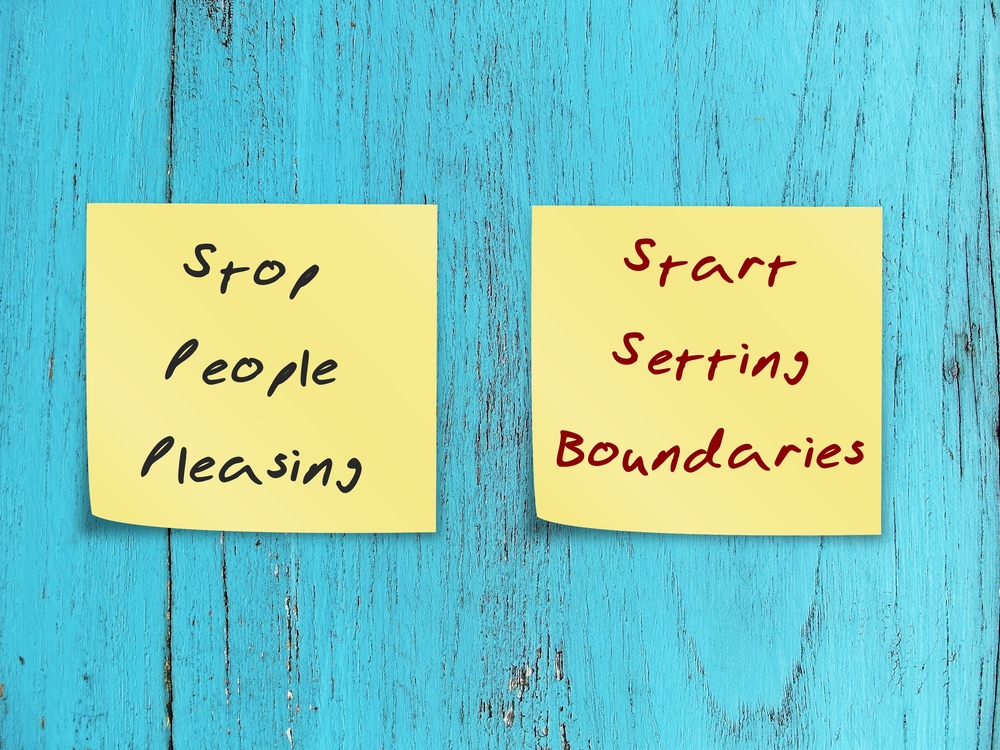Are you constantly trying to make everyone around you happy, often at the expense of your own needs and happiness? If so, you're not alone. Many of us fall into the trap of people-pleasing, driven by the desire for approval and the fear of disappointment. But the truth is, when you stop trying to please everyone, you find true joy and fulfilment in being authentically you. In this post, we'll explore the roots of people-pleasing behaviour and share practical steps on how to break free from it.
Jump to:
What is People-Pleasing?

People-pleasing is a pattern of behaviour where someone prioritises the happiness and approval of others above their own needs and desires. This can manifest in always saying yes, avoiding conflict, and going out of your way to accommodate others. While it might seem harmless, people-pleasing can lead to stress, burnout, and a loss of identity.
The Root Causes of People-Pleasing
So, what drives us to become people pleasers? Often, it stems from a deep-seated fear of rejection and a longing for acceptance. Some might find its origins in childhood, where the love and attention received were conditional upon meeting certain expectations. Others may develop these tendencies as a response to trauma, viewing pleasing behaviour as a means to avoid conflict or criticism.
Recommended for you!
Best SellersHow to Break the Cycle: 8 Steps

The path from people-pleasing to embracing your true self involves intentional steps toward self-awareness and boundary-setting. Here are eight effective strategies to guide you through this transformative journey:
1. Recognise Your Worth
Understanding your value is the first step in overcoming people-pleasing. This isn't about how much you accomplish or the validation you receive from others. It's about acknowledging your intrinsic worth. Begin this journey by affirming your qualities, celebrating your successes, no matter how small, and reminding yourself daily that your value doesn't decrease based on someone's inability to see your worth. This self-recognition is essential for building the confidence needed to make the right decisions for you, not just those around you.
2. Set Healthy Boundaries
Boundaries help you live a balanced life. Learning to say no is essential for anyone looking to escape the people-pleaser syndrome. Understand that you have the right to prioritise your needs and make decisions based on what's best for you. Start small by saying no to minor requests that don't align with your time or energy, and gradually work your way up. Communicating your limits clearly and assertively sends a message that you respect yourself and teaches others to do the same. This skill protects your energy and encourages healthier, more respectful relationships.
3. Embrace Authenticity
Authentic living is the secret to true happiness. Being true to yourself means letting go of the need to conform to the expectations of others. It involves reflecting on your values, desires, and beliefs and aligning your actions with them. Start by identifying one aspect of your life where you feel you're not being true to yourself and make a conscious effort to embrace your genuine thoughts and feelings in that area. Authenticity might not please everyone, but it will certainly attract those who love and accept the real you, and this alignment is where true fulfilment lies.
4. Practice Self-Care
Self-care is not selfish; it's essential. People-pleasers often put their own needs last. To shift this dynamic, start incorporating self-care practices into your daily routine. Whether it's indulging in a hobby, spending quality time alone, or simply resting, prioritising your well-being is key. Self-care isn't always about grand gestures; it's found in the small moments of kindness you show yourself throughout the day. By replenishing your own reserves first, you'll be in a better position to give to others without draining yourself.
5. Seek Support
You don't have to navigate this path alone. Seeking support from friends, family, or professionals can provide the strength and perspective needed to overcome people-pleasing. Whether it's sharing your struggles with a trusted friend or seeking therapy, external support can validate your feelings and offer strategies for change. Asking for help is a sign of strength, not weakness. It's an important step in breaking the cycle of people-pleasing and finding a community that uplifts and supports your journey to self-empowerment.
6. Reflect on Your Relationships
Healthy relationships are reciprocal, not one-sided. If people-pleasing has led to imbalanced relationships, it's time to reassess and make changes. Evaluate your relationships based on mutual respect and support. If you find that some are predominantly take and little give, consider setting boundaries or possibly reevaluating the relationship's place in your life. Prioritising relationships with people who value and respect your boundaries is essential for your mental and emotional well-being.
7. Understand the Impact
Acknowledging the toll of people-pleasing is a critical awakening. Realising that being a people-pleaser can lead to stress, anxiety, and depression is an important step towards change. This acknowledgement can fuel your motivation to shift your behaviours and adopt healthier patterns. By addressing your people-pleasing tendencies, you model healthier behaviours for those around you, contributing to a more authentic and fulfilling life.
8. Find Happiness Within
True contentment comes from within, not from external approval. The ultimate goal of stopping people-pleasing is to find happiness within yourself. This means understanding that the satisfaction that comes from pleasing others is temporary and often unfulfilling. Begin by identifying what brings you joy independently of others' opinions or expectations. Pursue these passions and allow yourself to feel content with your choices. Over time, you'll find that living authentically leads to deeper, more meaningful connections with others.
Common Questions About Overcoming People Pleasing

What is the root cause of people-pleasing?
People pleasing often stems from a fear of rejection and a deep-seated longing for acceptance. This may originate from childhood experiences where love and attention were conditional upon meeting certain expectations or as a response to trauma.
What kind of trauma causes people-pleasing?
People-pleasing can be caused by various forms of trauma, including emotional neglect, abuse, or experiencing volatile environments where pleasing others was a strategy for avoiding conflict or criticism.
Is being a people pleaser a form of anxiety?
For many, people-pleasing is a coping mechanism to manage underlying anxiety. It often stems from the fear of disappointing others and the anxiety around potential conflict or rejection.
What kind of childhood did people pleasers have?
Many people pleasers grew up in environments where their needs were often overlooked or felt they had to earn love and attention through their actions, leading to a pattern of prioritising others' needs over their own.
Are people pleasers manipulative?
While it may not be the intention, people-pleasing behaviours can sometimes be perceived as manipulative because they involve altering their behaviour to elicit a certain response or approval from others.
Why is it so hard to stop people pleasing?
Stopping people-pleasing is challenging because it involves changing deeply ingrained behaviours and confronting fears of rejection or conflict. It requires a conscious effort to prioritise your own needs and establish healthy boundaries.
What should you expect when you stop people-pleasing?
When you stop people-pleasing, you may initially face discomfort and resistance from those used to your accommodating nature. However, over time, you'll likely experience greater self-esteem, authentic relationships, and a deeper sense of personal fulfilment.
Is people-pleasing a form of PTSD?
People-pleasing can be a response to trauma, including PTSD, as people may use pleasing as a way to avoid conflict or ensure safety in their relationships. However, not all people-pleasing is related to PTSD.
Recommended for you!
Best SellersEmbrace Your Authentic Self with Centre of Excellence
Begin a transformative journey towards self-fulfilment with our Living Your Best Life Diploma Course, designed to guide you out of the people-pleasing cycle and into a life of authentic happiness.
Why Centre of Excellence?
- Inclusivity: We believe in making transformative education accessible to all. That's why we offer our courses at affordable prices, ensuring that everyone has the opportunity to grow and learn.
- Learn on Your Terms: Our courses are crafted to fit into your life seamlessly, allowing you the freedom to learn at your own pace and schedule. This flexibility ensures that personal development doesn't have to take a backseat.
- Diverse Learning Opportunities: With a curriculum that spans a variety of personal growth and empowerment topics, our courses are designed to meet a variety of needs and interests, all focused on helping you lead a more fulfilling life.
- Dedicated Support: Enrolling in our courses comes with the added benefit of personalised tutor support and an engaging community of fellow learners, who will encourage and assist you throughout your journey.
Special Invitation
We're excited to offer our Living Your Best Life Diploma Course at an exclusive rate of £29, providing savings of over £100!












